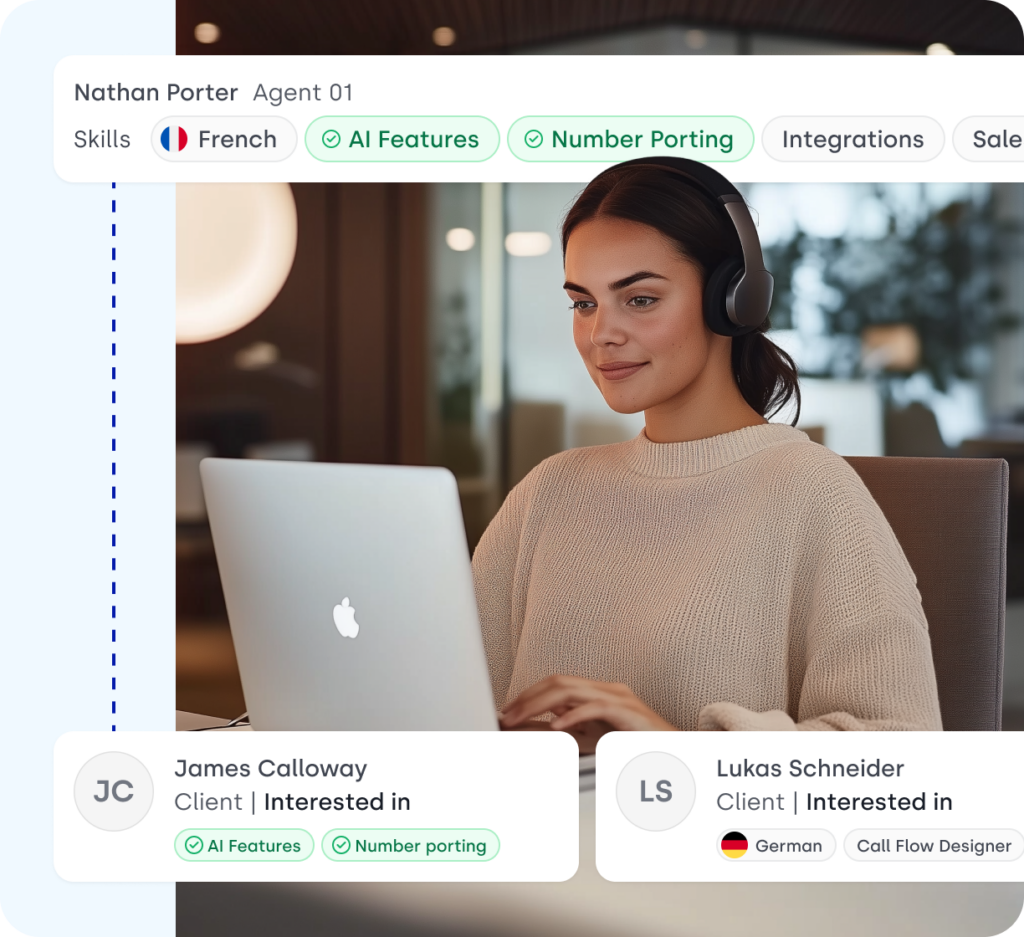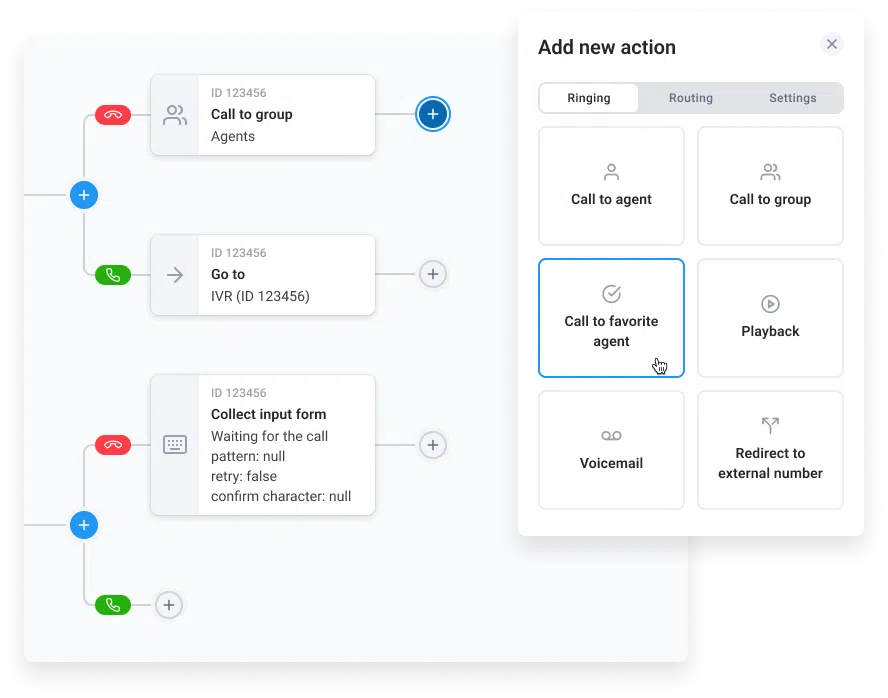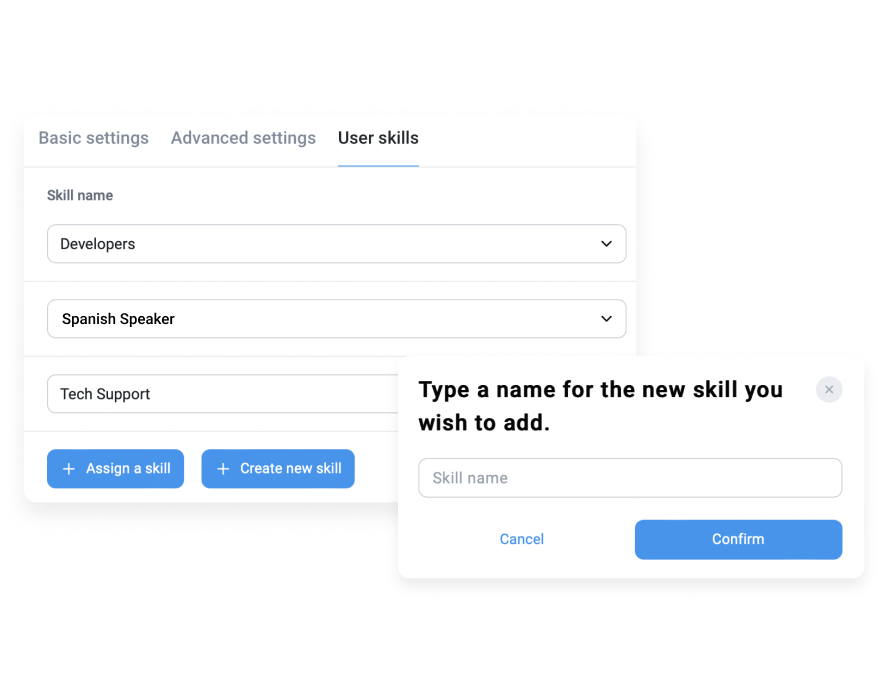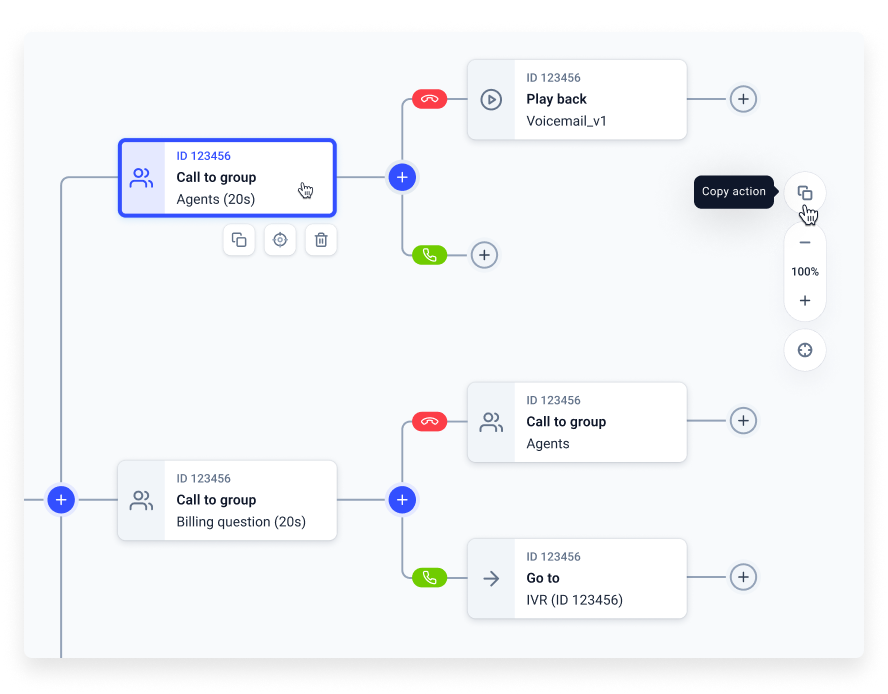Skill-Based Routing Software: What It Is and Why Your Call Center Needs It
Connect customers to the right expert from the start. A skill-based routing solution speeds up service, boosts resolution rates, and keeps both customers and agents happy. Discover what it is and how it delivers.

We’ve helped thousands of global companies
Case studies featuring customers who are building faster.
What Is Skill-Based Routing?
Skill-Based Routing is a call management system that directs incoming calls to the most suitable agents based on their specific skills, expertise, language, or department. This ensures customers are connected to the right specialist who can best address their needs.
For example, if a caller requires technical support, the skill-based routing tool automatically routes the call to an agent with IT expertise.
Similarly, calls from Spanish-speaking customers are directed to agents fluent in Spanish. This avoids customers being bounced between agents, reducing frustration and increasing resolution speed.

How Does Skill-Based Routing Work?
Skill-Based Routing enhances traditional call center routing by adding a smart layer to Automatic Call Distribution systems (ACD). While ACD manages calls by availability or location, skill-based routing technology prioritizes agent skills.
This ensures faster, smarter call routing, connecting customers to the right expert and improving satisfaction.Here’s how the skill-based routing call center process works in simple steps:
- Skill identification: Defines key skills agents need, like language, product knowledge, or technical expertise.
- Agent skill mapping: Assigns skill profiles to each agent based on their strengths and training.
- Customer context collection: Gathers customer info from IVR, CRM, or call history to understand their needs.
- Skill-based routing algorithm: Uses an intelligent algorithm to match customers with the best available agent.
- Qualified agent routing: Routes the call directly to the right agent for quick and effective support.

Smart Routing
Guide Your Customers with Confidence
Direct your customers to the right agent or department
in the best way possible.
Everyone Wins with Skill-Based Routing
No one likes being passed around like a hot potato, and agents don’t enjoy dealing with issues outside their expertise either. Skill-Based Routing puts an end to that, connecting customers with the right expert from the start and letting agents focus on what they do best.
Benefits for customers:
- Personalized, expert service from the start
- No need to repeat information or endure multiple transfers
- Faster, smoother support that respects their time
Benefits for your team:
- Handle cases aligned with their skills and strengths
- Less stress and clearer priorities
- Better opportunities for recognition, growth, and motivation

How to Set Up Caller-Based Routing in CloudTalk
- In your CloudTalk account, click the left-hand side Numbers tab on the Dashboard.
- Click the blue pencil icon next to the number you want to configure.
- In the call flow, click the + icon where you want to insert the condition splitter.
- Choose an action (e.g., route to a specific agent or group) for calls that meet certain criteria.
- Click Save flow to apply your changes.

Frequently asked questions
Everything you need to know about the product and billing.
When should a company consider using Skill-Based Routing?
If your team handles multiple product lines, languages, or customer tiers—or if you’re seeing high transfer rates and low first-call resolutions.
How to set up routing rules?
Use your call center’s call flow designer to define agent groups and match calls to them based on IVR selections, caller data, or past interactions.
What are the types of skills-based routing?
Types include language-based, product expertise-based, priority-based, and location-based routing.
What is a skills-based routing algorithm?
It’s the logic system that matches incoming calls with the most appropriate available agent based on your preset criteria.
What is skills-based routing vs. queue-based routing?
Queue-based routing assigns calls to the next available agent. Skill-Based Routing assigns calls to the best-fit agent, improving resolution speed and customer satisfaction.
What are the key challenges in implementing Skill-Based Routing?
Accurate agent skill tagging, maintaining up-to-date skill lists, and integrating with existing systems.
What metrics should be used to evaluate the effectiveness of Skill-Based Routing?
First-Call Resolution, Average Handle Time, Customer Satisfaction Scores (CSAT), and Agent Utilization Rates.
How can businesses ensure the accuracy of their skill-based routing system?
Regularly update agent skill profiles, monitor routing outcomes, and adjust call flow rules as your business evolves.
What is the main benefit of skill-based call routing?
It connects callers to the most qualified agent, reducing transfers and speeding up issue resolution.



Still have questions?
Can’t find the answer you’re looking for? Please chat with our team.
Ready to get started?
Join over 4,000+ modern companies that already trust CloudTalk to have MORE and BETTER calls.










